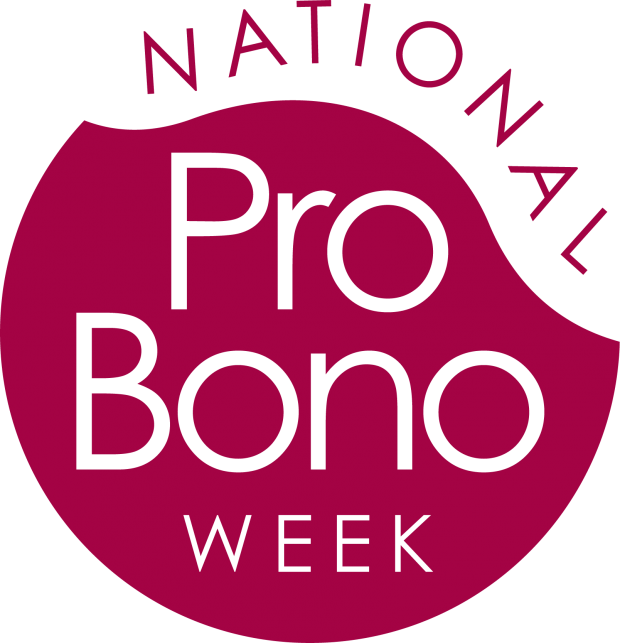 That pro bono “does not exist in a vacuum” is repeated as something of a mantra by LawWorks – so this year it was refreshing that National Pro Bono Week 2017 (6th – 11th November) was specifically themed around the contribution of pro bono to the health and education sectors.
That pro bono “does not exist in a vacuum” is repeated as something of a mantra by LawWorks – so this year it was refreshing that National Pro Bono Week 2017 (6th – 11th November) was specifically themed around the contribution of pro bono to the health and education sectors.
For health, this includes Legal clinics working in healthcare and NHS settings, various medical legal partnerships, and also the well-evidenced links between volunteering and mental health – ie pro bono supporting the legal profession’s own wellbeing. For education, pro bono lawyers and law schools can play a key role in providing public legal education, working with schools and engaging communities in how the legal system works, the rule of law, individual rights and responsibilities. Much of what we describe as ‘pro bono work’ involves working with vulnerable clients (e.g. with mental health or literacy issues) and distressed users of the justice system, with pro bono playing a modest but significant part in helping individuals to access advice and representation on a range of social welfare law issues, including the health and care systems and special educational needs cases.
Given the health and education themes, the events in this year’s National Pro Bono Week ranged widely, from a launch with Professor Hazel Genn, Sir Robin Knowles, Yasmin Waljee and Bridge Mental Health Charity CEO, Raymond Sheehy, to a number of law school and local law society events in Birmingham, Winchester, Lancaster, Exeter and Plymouth, as well as a number of 1-hour workshops in secondary schools on social media and the law encouraged by a public legal education campaign co-ordinated by the Citizenship Foundation and BPP University Law School. Other events included a Bar Council hosted meeting of leading tribunal judges talking about “the Citizen and the State,” a Law Society event with international development charities on international pro bono, a meeting of the European Bars Federation and NGOs on pro bono and access to justice on climate change, screenings of both the ‘Cruel Cut’ and ‘I Daniel Blake,’ a live streamed seminar on pro bono cost orders, and a Quiz night.
LawWorks were particularly pleased during National Pro Bono Week to be able to work with Edgar Cahn, a legal scholar and activist from the USA who has been a pioneer of “co-production” approaches to legal services – ie making clients and communities equal partners and assets in the design and delivery of services. As a civil rights veteran whose career stretches back to the Kennedy-Johnson era, Edgar was instrumental in the USA in starting the Federal legal aid scheme, and then founded his own Law School dedicated to access to justice. In recent decades he has also built up the timebanking movement, based on the idea that the giving (and receiving) of time can itself be a currency of exchange – an interesting idea for all those debating the value of ‘pro bono hours’.
LawWorks ran three events this year, firstly a lively meeting of the All Party Parliamentary Group (APPG) on Pro Bono and Public Legal Education (to which we provide the secretariat), in which Edgar Cahn, Sarah Bird (CEO Timebanking UK), and Robert Buckland MP, the Solicitor General, discussed the relevance of Timebanking for pro bono. Secondly, we held a special lecture delivered by Edgar Cahn in which he explained his ideas and ways of doing co-production in more detail, emphasising the role of lawyers as “systems builders” for the future. Christina Blacklaws, Deputy President of the Law Society who chaired the event, responded by saying that the profession needed to take up Edgar’s co-production challenge. Thirdly, we organised a conference with the University of Manchester for law students interested in pro bono, bringing together a range of pro bono leaders in Manchester and beyond, and academics pioneering new approaches to pro bono in clinical legal education.
Pro Bono week is the perfect antidote to lawyers feeling that with the scale of the problem there is nothing meaningful they can do at an individual level. That ‘every little bit helps’ is very true of pro bono services and this is demonstrated during National Pro Bono Week, in terms of the impact on the lives of those being helped. As the leaders (Joe Egan, Andrew Langdon and Millicent Grant) of the three professional bodies say in their joint introduction to the week’s “Guide to Pro Bono” “(Lawyers) provide their professional advice for free to those in need to an extent that is unparalleled by any other profession, ensuring that even the most disadvantaged in society can enforce their rights.. (However), .it is important to state that pro bono legal services are not, nor can they ever be, a substitute for a properly funded system of legal aid.”



